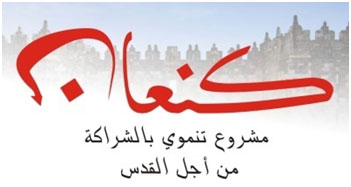2017-12-31
Israeli violations against Palestinian Right to Housing in Occupied East Jerusalem During December 2017
Preamble:
The Israeli Occupation Authorities kept on its violations against Palestinians and the Occupied Jerusalem.
During December 2017, eight residences and structures were demolished by the occupation's municipality in Jerusalem. Five structures were demolished in Silwan where three others were brought down in Ras Shehada neighborhood nearby Shu'fat Refugee Camp.
Moreover, Israel Nature Authority violated Bab Al-Rahma cemetery. In Damascus Gate, the occupation forces set up "elevated stands" as watch posts to control and monitor the Palestinian movement in the area.
Demolition of Palestinian residences:
During December 2017, the Israeli occupation municipality demolished 6 residences in East Jerusalem including 3 stone houses and 2 fortified plastic panels houses and one steel sheet barrack.
The following table illustrates the number of demolished residences in Jerusalem during December 2017:
Location | Aream2 | No. of residences | Family | Children |
Ras Shehada | 200 | 3 | 14 | 6 |
Silwan | 200 | 3 | 10 | 4 |
Total | 400 | 6 | 24 | 10 |
Source : Field observation- Department of Monitoring Israeli Violations- Land Research Center-2107
Demolition of Palestinian structures:
During December 2017, the Israeli occupation municipality demolished one public room and one barrack . The following table illustrates the number of demolished structures during December 2017:
Location | No. of structures | Benefited family members | Including children |
Silwan | 2 | 10 | 5 |
Total | 2 | 10 | 5 |
Source : Field observation- Department of Monitoring Israeli Violations- Land Research Center-2017
Colonists' attacks:
- Employees from Israel Nature Authority cut down trees in Al-Salawna cemetery, southeast Al-Aqsa Mosque wall in order to implement the so-called "Talmudic Gardens" plan.
- The Israeli Occupation Authorities conducted excavations works and set up watch towers in the area of Damascus Gate to harass Jerusalemites on daily basis.
Land Research Center LRC sees that demolitions contradict with all the International conventions and Humanitarian laws including:
Article 17 of the (1948) Universal Declaration of Human Rights stating: “Everyone has the right to own property alone as well as in association with others. No one shall be arbitrarily deprived of his property.”
Section ‹G› of article 23 of the (1907) The Hague Conventions asserting: “In addition to the prohibitions provided by special Conventions, it is especially forbidden to destroy or seize the enemy's property, unless such destruction or seizure be imperatively demanded by the necessities of war.”
Article 53 of the Geneva Fourth Convention (1948) declaring: “Any destruction by the Occupying Power of real or personal property belonging individually or collectively to private persons, or to the State, or to other public authorities, or to social or cooperative organizations, is prohibited, except where such destruction is rendered absolutely necessary by military operations.”
Section 1, Article 11 of the International Covenant on Economic, Social and Cultural Rights (1966): “The States Parties to the present Covenant recognize the right of everyone to an adequate standard of living for himself and his family, including adequate food, clothing and housing, and to the continuous improvement of living conditions. The States Parties will take appropriate steps to ensure the realization of this right, recognizing to this effect the essential importance of international co-operation based on free consent."
This case study is part of Kan'aan Project

